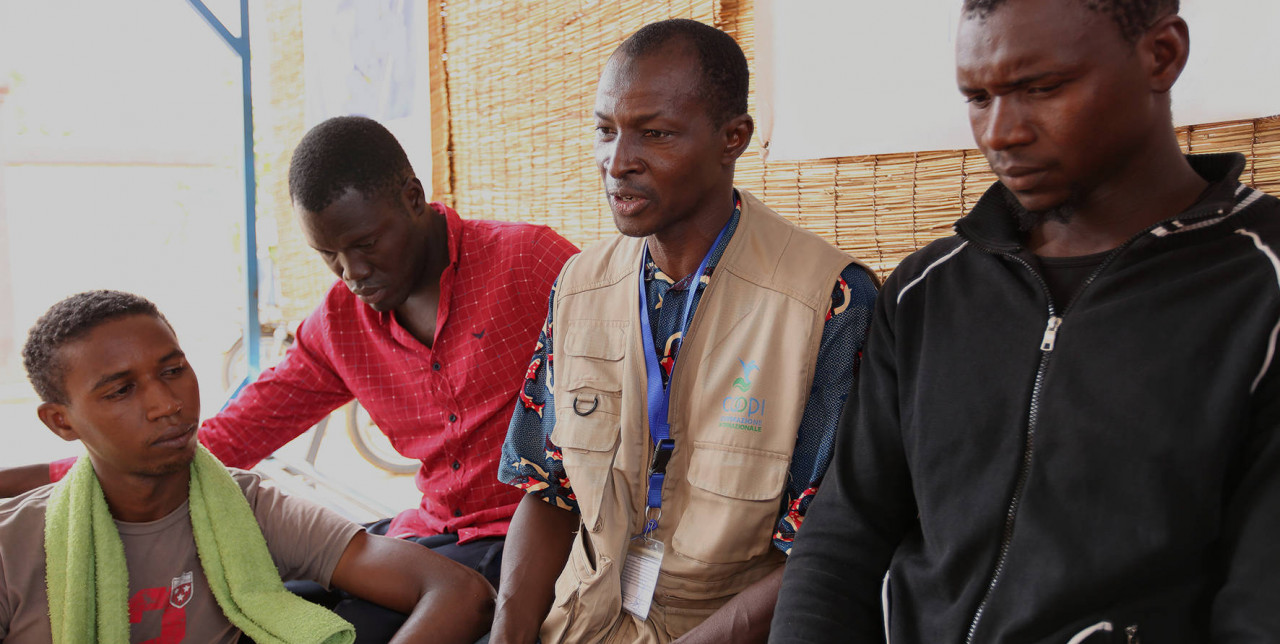09-05-2018 | di COOPI
Niger, sheltering Libyan refugees
Since December 2017, COOPI has been working with UNHCR to provide refugees from Libya with shelter and protection during their transit through Niger, as part of the ETM (Emergency Evacuation Transit Mechanism) programme.
The mechanism envisages the identification of the most vulnerable refugees and asylum seekers by UNHCR Libya staff held in Libyan detention centres. These people are evacuated, on a voluntary basis, to transit countries where they can wait, in suitable protected conditions, for their cases to be processed and put forward for resettlement in third countries.
It was under such circumstances that UNHCR Niger and Niger's government signed an agreement to implement the ETM in late 2017. This memorandum makes it possible to provide temporary shelter to people needing international protection in Niger, while they wait for alternative, long-term solutions in third countries, first and foremost resettlement.
Since then, ten flights (transporting a total of 1,020 people) have arrived in Niger from Libya. COOPI currently runs 17 transit centres in Niamey and six transit centres in Agadez. These centres offer hospitality and protection and suitably address the needs of refugees and asylum seekers whilst preparing them for resettlement. The aim is to allow refugees to have access to a process of empowerment: a tailor-made, organised process that permits each beneficiary to reconstruct his or her ability to choose and plan their own lives, as well as regain an awareness of their own value, potential and opportunities.
This means that their room and board, as well as medical treatment, are supplemented with the provision of services that allow them to become self-sufficient. It is essential that the journey take into account the complex circumstances of each beneficiary in terms of their rights and duties, expectations, personal characteristics, life story, political and cultural background and their needs. This approach means that personnel who work in the centres must be able to listen so as to understand the different needs of people, particularly those needs that are not expressed in words.
To this end, COOPI provides psychological support to people in need, thanks to a team of psychologists, and also refers more complicated cases to the centre for migrant mental health which COOPI opened in Niamey in November 2017, in partnership with the national mental health programme. The centre was set up to treat both legal and illegal immigrants with mental health problems, psychosocial difficulties, victims of torture, human trafficking, GBV and children. It is an inclusive centre that can meet the real needs of migrants and refugees.
What's more, a series of socio-recreational activities (drama, dance, art, martial arts, sport) and educational schemes (adapted to suit different ages) are organised every day in each centre.
Transit centres are run by a centre manager, nurses, social workers, teachers and educational psychologists who plan activities, address difficulties and capitalise on results. A team of doctors, psychologists and psychiatrists provides support for medical and psychological treatment. The programme coordinator, assisted by the staff and the ETM programme supervisor, organises weekly planning meetings and assesses the work carried out and centre administration.




 Niger
Niger